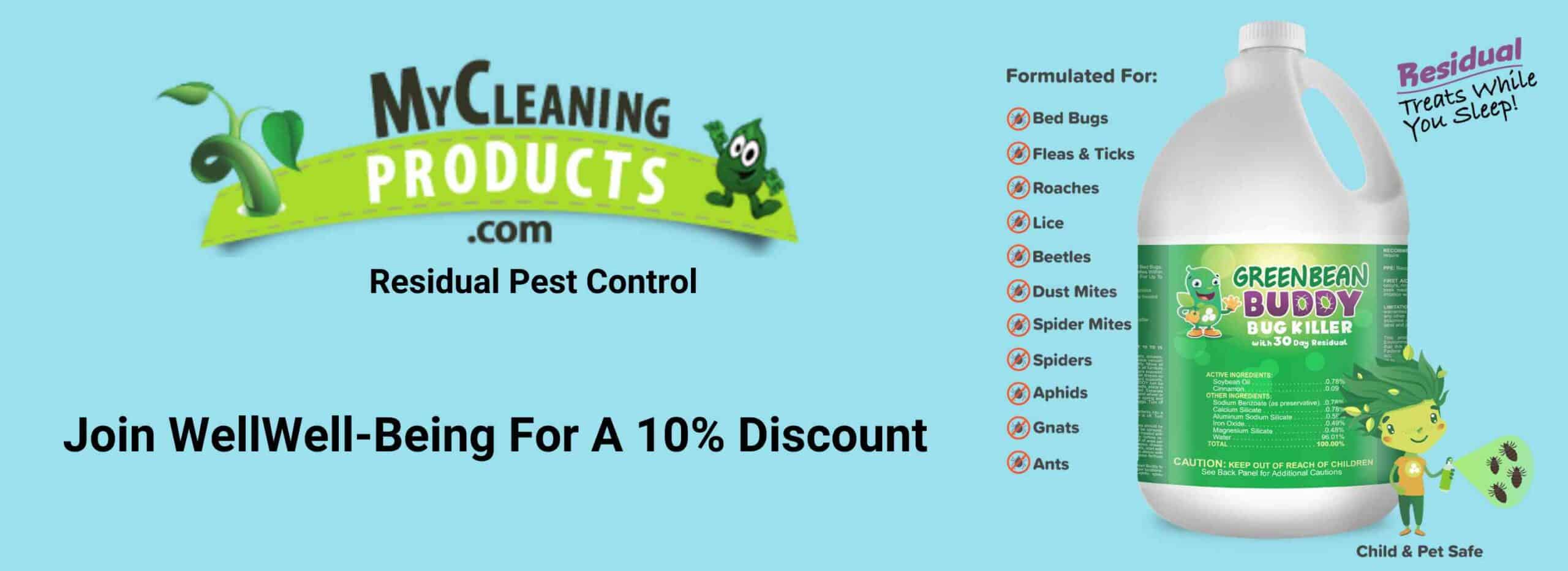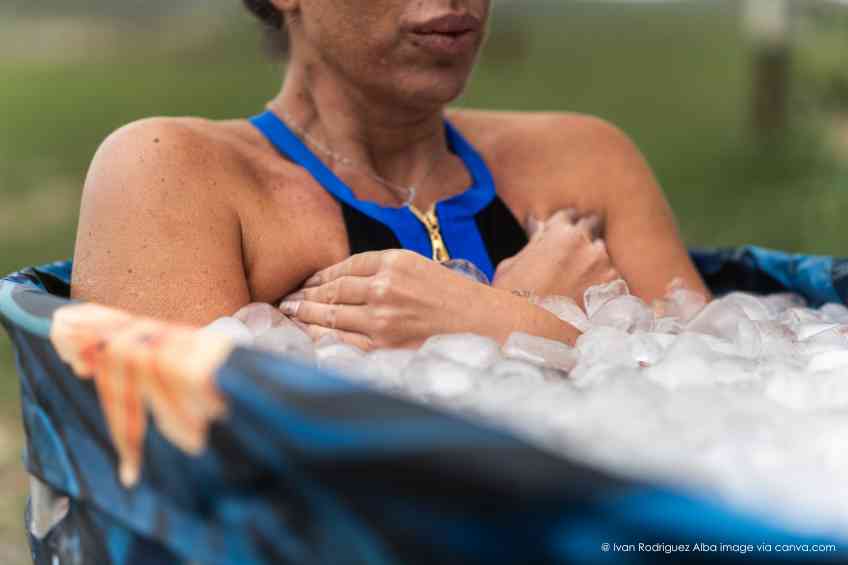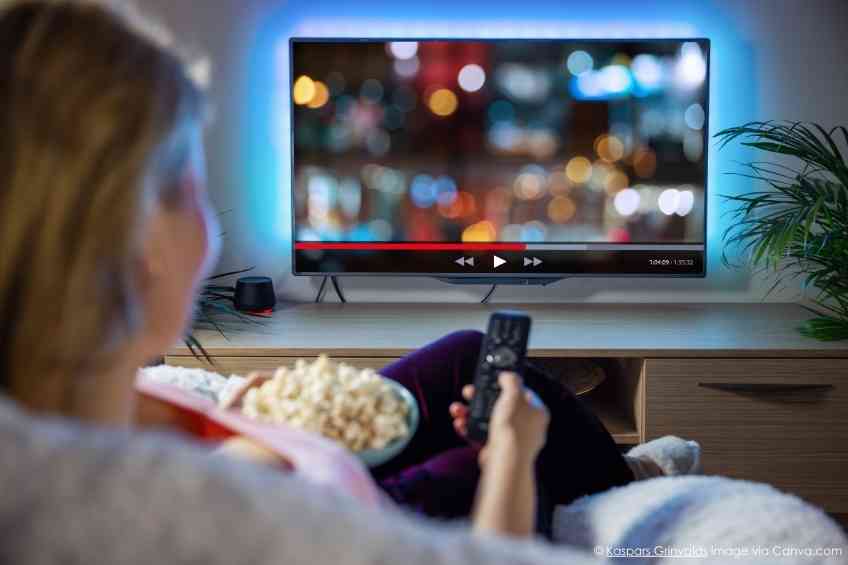It’s hard to argue against the idea of sustainability. It’s a noble and important concept that centers on eliminating waste, preserving resources and protecting the environment. Most people would seem to support the idea, at least in theory. Unfortunately, transforming this practice or process into a widespread reality that has a significant impact hasn’t been easy or even clean (forgive the pun). There has been a lot of pushback and missteps in people, communities and businesses embracing sustainable practices. These hiccups and hurdles have even deflated the best intentions of many well-meaning people and organizations. This doesn’t mean a retreat from sustainable lifestyles is in order or underway. But it may mean a reset is needed. Thankfully, Kenny Barnes, the Program and Outreach Coordinator for Sustainability Matters, recently spoke to WellWell on how all involved can overcome the roadblocks, toss the guilt and learn to make meaningful steps toward embracing sustainable living and practices that combined can have an enormous impact on our lives, communities and world. Read on.
What is your definition of sustainability and what do you think most people assume it really means?
I think sustainability is a hot topic right now. And for some reason, it’s a polarizing one as well. But for myself and us at Sustainability Matters, sustainability is simple. It’s the idea that people can coexist with the natural world within a system that supports all of us. Pretty much everything we use, and everything we need depends either directly or indirectly on the natural world. Sustainability is all about protecting and preserving that relationship whether it be social, economic or any facet of our life. Sustainability is all about fulfilling the needs of our current generation without sacrificing the needs and wants of future generations. And for other people, I think they have pretty similar definitions of it. Whether they actually believe directly in it all the time, I think is different. I think a lot of the time when they hear sustainability, they associate it with things they see in the news, whether that be climate change, recycling or pollution. So, I think they think about all the different facets of sustainability, but perhaps we don’t do a good enough job of communicating how all those facets are interrelated.
Most people assume it’s about taking cans and bottles and putting them in recycling tubs. Do you think that is the working assumption for most people?
I think historically, yes. In America, there’s been a lot of information that puts the onus on sustainability, conservation and pollution on individuals. A lot of the time people have grown up with the understanding that doing things like recycling is great for the environment, which it is, like riding their bike or carpooling. And these are definitely aspects of sustainability. But we have missed the note on sustainability in that a large group ties it directly to climate change and that alienates a large portion of the population because they come on very strong with their beliefs and are perceived as telling people what to do. But with sustainability, it’s all about incorporating everybody into a system that works for us all. It’s not about making a ton of sacrifices in your regular life so you can be a better steward of our planet. It’s about creating systems and putting policies into place where we can all live our fullest lives without sacrificing the natural world around us.
Do you think most adults or families are adopting the sustainability philosophy, whether they practice it or not?
From the statistics I’ve seen and the people I talk to, I think there is just an increased awareness about sustainability and an increased desire to live a sustainable life and just a lower-impact life more generally. I think the issue comes in matching that desire with the actual behavior changes. But in terms of general awareness, I think we do a pretty good job and people are just becoming more aware of the impact that they have. It’s all about just taking that awareness, knowledge and education and turning it into behavior change. And that behavior change is the hardest part of sustainability.
What are the challenges to putting sustainability practices into effect?
There are so many challenges that it’s just very overwhelming for people. To start, sustainability is something that touches every single aspect of our lives. You can’t go to the grocery store and get food without impacting the environment. You can’t drive your car without having an impact on the environment. So pretty much every single thing we do has some negative impact. And I think that’s very overwhelming for people because a lot of the time they don’t really know where to start, they get bombarded with things like you should be carpooling, you should be taking public transportation, you shouldn’t be eating meat. And then these people are like, okay, well, I live 40 miles away from my job, there’s no public transportation offered to me and my kid likes cold cut sandwiches for lunch. These are the things that are hard to sacrifice and problems that we don’t necessarily have answers for. So, I think that feeling of just overwhelmingness debilitates a lot of people to a point where they don’t even really get started trying to apply these in different aspects of their lives. But I don’t think it’s from a lack of desire. I really think it’s just a lack of systems in place and a lack of knowledge and education about how we can easily change those systems to make them work for us.
How much is the generational impact affecting the country’s embrace of sustainability?
There are differences generationally, but I think oftentimes they’re overstated. At Sustainability Matters, a large portion of our volunteers and supporters are in that 55-plus demographic. So, there are definitely older people who are very environmentally conscious and want to do their best to mitigate their impact and create a better world for future generations. Obviously, there are a lot of studies that show that people, Gen Z and Millennials, are much more worried about climate change and I think that makes sense. We’re going to be the ones who are alive and dealing with a lot of these consequences, whereas people who are older don’t really have those considerations. They have loved ones they have to think about, but those problems are literally when they are no longer going to be on the earth. And there’s also the idea that it’s hard or you can’t teach a dog new tricks. Older people have grown-up accustomed to living in these systems that do not support our planet. They’re used to filling up their tank with gas and driving a car, they don’t want to use electric vehicles necessarily. A lot of people tie recycling very closely to sustainability. Younger generations don’t see recycling as a great option. They want to mitigate the plastic waste before they even have it. So, there are differences like that generationally, but I think by and large, it’s not really age that separates us on these things. I think a lot of the time it’s our own political affiliations, the information that we’re given, more so than age.
How do we begin incorporating sustainable practices into our lives?
I think it really comes down to three main categories. The first is just voting. There’s no way around it. Climate change and sustainability is a political topic in America, and the people we elect to office have more impact than any one individual outside of office can have. Outside of that, you can also advocate and educate. That’s something that we really focus on here at Sustainability Matters. Just teaching people ways they can practice sustainability easily. Encourage people to volunteer for local organizations, advocate for conservation, attend workshops and webinars to learn more about specific topics and share what you learn with your family and friends. Since I’ve started caring about sustainability, the effect that it’s had on my friends and my family, I mean, it’s honestly hard to put into words just the change that one individual person can have on their circle. To advocate and educate other people is another huge one.
Then the third main category comes down to individual behavior change. Take a look in the mirror and assess and look for ways for you to improve. That’s not necessarily about self-judgment and feeling bad about what you buy or how you operated in the past or might operate in the future. It’s about getting information about your individual impact and finding ways to improve it can be very overwhelming to start on a sustainability journey since it touches all aspects of our life. There are people who really care about native plants in terms of sustainability, people who care about plastic use, people who care about greenhouse gas emissions and the list goes on and on and on. So, for individuals and families, the thing that I always encourage them to do is start with one main focus or even just one room at a time and try and be sustainable in there.
What do we do in our lives to lead a more sustainable life if we’re in an urban environment?
Composting would be a great option because honestly, food waste is the number one impact that humans have on the environment. A great place to start is with one main focus or one room at a time. A kitchen is a great place to start. Go through your pantry, go through your trash and see what’s producing the most waste. Look for eco-friendly alternatives to that. You can stock up on silicone baggies, so you don’t have to buy single-use plastic baggies anymore. You can purchase reusable beeswax wraps instead of plastic wraps, you can go with glass Tupperware instead of plastic. You can shop for things like dish soap, beans, coffee and other stuff like that at refill stores. You can use your glass jars so that you’re not producing any more packaging.
And of course, there are also a ton of other aspects in the kitchen where you can practice sustainability. You can look for ways to reduce your meat consumption and eat a more plant-based diet. Meat and dairy, especially beef, consume a ton of land and water and emit a ton of methane, which is pretty much the worst greenhouse gas that we have. So even though a hamburger tastes great, maybe you go with a veggie burger every once in a while to mitigate that impact. You don’t have to say, okay, I care about the environment, I’m going vegan now. That would be great, but it’s also very hard to sustain that change if you aren’t practicing cooking a plant-based diet.
You can also consider food waste like I talked about earlier. Americans discard 120 billion pounds of food per year which is about 325 pounds per person. So, that’s almost a pound of food per day we’re throwing away individually. And that’s about 40 percent of the U.S. food supply. And while a lot of the times we can blame things with climate change on corporations, 43 percent of that waste is actually coming from households. So that’s something that individuals really are in control of. we had the power to change that. And again, that’s not like a blame game. All of us have bought those salad packets and plastic that go bad before we throw them away. Everybody is guilty of that; everybody lets bananas go brown. They say they’re going to make banana bread and they never actually do. They have leftovers and they don’t actually eat them. The sad thing is that all of that stuff ends up in the landfill. roughly 24 percent of all solid waste in landfills is simply food that was good at one point that we didn’t eat in time. And when it’s there, it’s trapped under heaps of trash. It doesn’t get oxygen, and undergoes anaerobic decomposition. This is essentially just a fancy way of saying it doesn’t do it right, so it ends up just releasing a ton of methane, a greenhouse gas 28 times more powerful at trapping heat in the atmosphere than CO2. If people can find ways to reduce their waste and compost what they have, that’s really a great starting point for a lot of families.
Is it a matter of doing more in terms of sustainability versus having to do everything at once?
Definitely. I’ll even look at myself, for example. I consider myself an environmentalist. I’m still living in a van that uses gas. I’m still driving around the country using gas. But at the same time, I haven’t used electricity in three months. I haven’t had to plug it in. I have solar. My batteries are able to charge from my driving. So, it’s really all about trade-offs. Nobody is doing everything perfectly because we don’t have systems in place for people to do it perfectly. If you go to the grocery store and you want to eat, you are going to be buying something in a single-use plastic. There’s no way where we can be all or nothing in sustainability. And by and large, it’s not about a few people practicing zero waste or emission reductions perfectly. It’s about a bunch of people practicing it imperfectly. That’s how we’re really going to have systemic change and a sustainable change.
Are there ways to quantify the payback of what we may be doing if people want to know if they’re having an impact?
There are ways to quantify it. There are tools out there for you to track either your individual or your family’s carbon footprint. You just input data about how much you travel, how big your home is for your heating and cooling and what you buy and eat and then all of that information will output an estimated CO2 footprint. But at the end of the day, I don’t think in most instances that impact or payoff is really the importance of the story. It’s all about the feeling and effects that it has on you and the people around you. I’ve seen stats that like 71 percent of all greenhouse gas emissions since 1998 have come from only 100 companies. And there’s only so much that individuals can do to change that.
But individuals do have the power to change their own behavior and influence those around them. If you start practicing sustainability, you’ll probably notice a decrease in your spending. You’ll probably be taking out the trash less. If you plant natives as part of your sustainability, you’ll probably see more pollinators in your yard. You can quantify it that way, but I also think it’s important to see how you feel and how people are reacting in the way around you because at the end of the day, that’s what’s going to create the snowball effect for more and more people to start caring. It’s educating, it’s advocating, it’s walking the walk more than it is about doing all these things to get a number back to feel like you’ve achieved something. At least personally, when I finish one of those salad packets, I get such a feeling of satisfaction because I know how bad it is to not finish it. I know that I haven’t wasted any money. I think once people start to actually seek out that feeling, they’ll realize that it’s a really good feeling.
What’s the role of government, state, local governments, schools, corporations, NGOs and nonprofits in moving education and policies forward?
I think it’s everybody’s job. Sustainability is something that affects us all and something that everybody has a responsibility for. I think it starts with families in schools, teaching their children about sustainability, teaching their children that climate change is real, and teaching them solutions that matter and will work for us. As a nonprofit at Sustainability Matters, we try to fill the role of education and awareness. For other nonprofits, they may focus on lobbying and working with local, state and federal governments. But I think at the end of the day, it’s all about figuring out what skills and abilities we have and finding ways to use your skills and abilities to leverage it and to inspire positive change in the world of climate action.
At the end of the day, the burden of really slowing and hopefully reversing the effects of climate change comes down to the federal government and corporations. Not to get political, but one candidate in the upcoming election is talking about massive tax incentives and regulatory favors to big oil companies for supporting his campaign. I can use as many reusable silicone baggies as I want, but if the powers that be aren’t taking those necessary steps to really mitigate that pollution and the greenhouse gas emissions, there’s only so much that individuals can do. And that’s why when I talked about things that individuals can do, voting was at the top of the list. You can change your behavior a lot, but really the policies in place and corporations, that’s where we’re really going to see systemic change that can change our world for the better.
About Kenny Barnes
Kenny Barnes is the Program and Outreach Coordinator for Sustainability Matters, a grassroots environmental nonprofit based in Virginia, dedicated to cultivating community through conservation and making sustainability inclusive for all. Sustainability Matters has an online community of more than 100,000 followers. To learn more, please visit https://www.sustainabilitymatters.earth.














